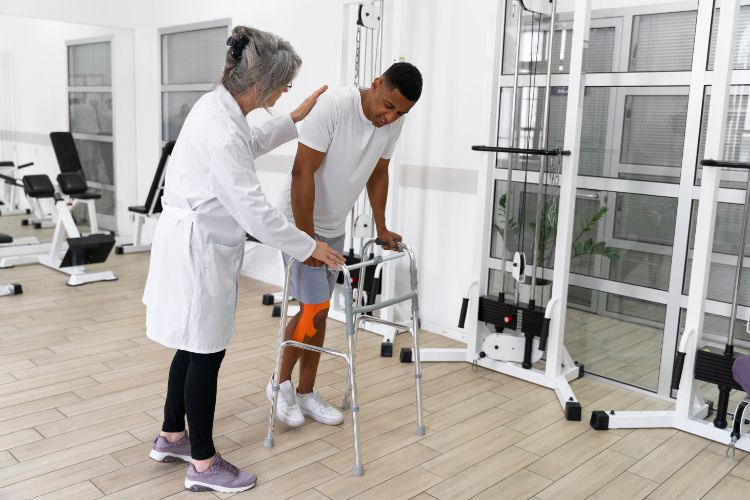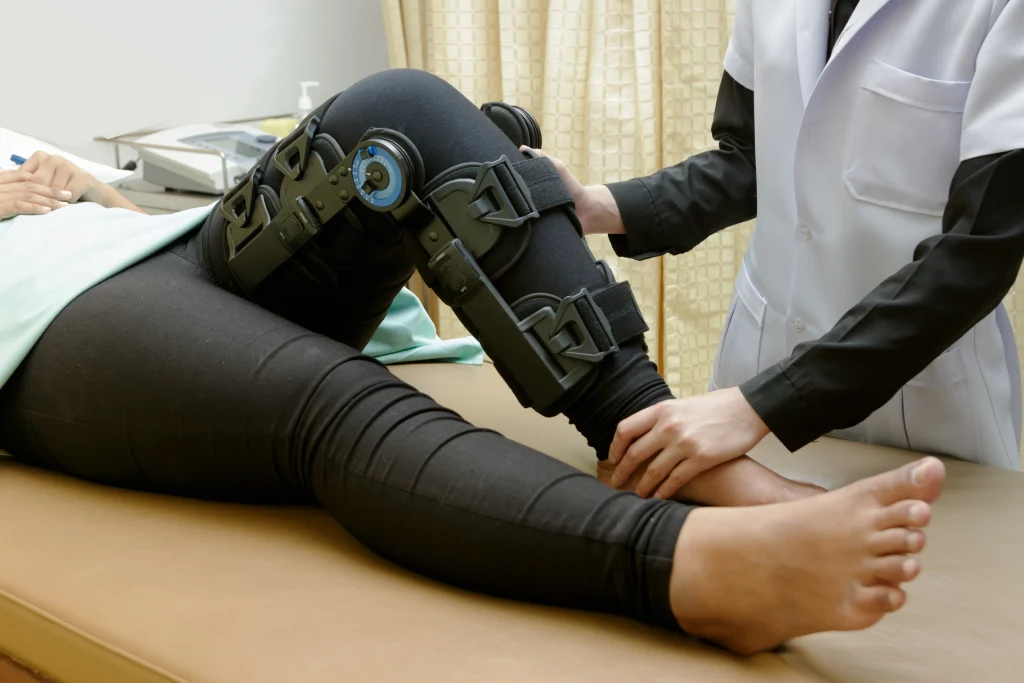Post-Surgical Rehabilitation in Calgary
Post-Surgical Rehabilitation in Calgary
Post-surgical rehabilitation plays a vital role in the recovery journey of individuals who have undergone surgical procedures. In Calgary, where residents prioritize health and well-being, access to comprehensive rehabilitation services is crucial for optimizing outcomes and restoring function following surgery. This guide explores common conditions requiring post-surgical rehabilitation in Calgary, the rehabilitation process, and the resources available in Calgary to support individuals on their path to recovery.
What is Post-Surgical Rehabilitation in Calgary?
Post-surgical rehabilitation is a specialized form of therapy designed to help individuals regain function, mobility, and independence following surgical procedures. Whether recovering from orthopedic surgery, cardiac surgery, neurological surgery, or other surgical interventions, rehabilitation focuses on addressing pain, restoring strength and flexibility, improving mobility, and enhancing overall quality of life.

Common Conditions Requiring Post-Surgical Rehabilitation
- Orthopedic Surgeries: Orthopedic surgeries, including joint replacement (e.g., hip, knee, shoulder), spinal surgery, fracture repair, and ligament reconstruction, often require post-surgical rehabilitation to optimize outcomes. Rehabilitation aims to improve joint mobility, muscle strength, and functional capacity while reducing pain and stiffness.
- Cardiac Surgeries: Following cardiac surgeries such as coronary artery bypass grafting (CABG) or heart valve repair/replacement, cardiac rehabilitation is essential for enhancing cardiovascular health, improving exercise tolerance, and reducing the risk of complications. Rehabilitation may include supervised exercise programs, education on heart-healthy lifestyle habits, and emotional support.
- Neurological Surgeries: Neurological surgeries, such as brain tumor resection, spinal cord surgery, or peripheral nerve repair, may result in neurological deficits and functional limitations requiring specialized rehabilitation. Neurorehabilitation focuses on promoting neuroplasticity, restoring motor function, and optimizing independence in activities of daily living.
- Abdominal Surgeries: Abdominal surgeries, including abdominal hernia repair, gallbladder removal (cholecystectomy), or gastrointestinal surgery, may necessitate post-surgical rehabilitation to address pain, restore abdominal strength, and promote optimal recovery of gastrointestinal function.
The Rehabilitation Process
The post-surgical rehabilitation process typically involves the following components:
Assessment and Goal Setting
The rehabilitation journey begins with a comprehensive assessment conducted by a multidisciplinary team of healthcare professionals, including physiotherapists, occupational therapists, and rehabilitation physicians. The assessment helps identify individual goals, functional deficits, and specific rehabilitation needs to tailor the rehabilitation program to the patient’s unique circumstances.
Individualized Treatment Plan
Based on the assessment findings and patient goals, an individualized treatment plan is developed, outlining the therapeutic interventions, goals, and timeline for rehabilitation. Treatment modalities may include therapeutic exercises, manual therapy techniques, pain management strategies, assistive devices, and patient education.
Progressive Rehabilitation
The rehabilitation program progresses gradually, with therapists adjusting the intensity, duration, and complexity of exercises and activities as the patient’s condition improves. Progressive rehabilitation builds strength, enhances flexibility and endurance, and restores independence while minimizing complications and setbacks.
Monitoring and Evaluation
Patients are closely monitored by their rehab team to track progress, identify recovery barriers, and adjust the treatment plan. Regular reassessment allows therapists to ensure that rehabilitation goals are being met and adjust interventions to optimize outcomes.
Discharge Planning and Follow-Up

Resources for Post-Surgical Rehabilitation in Calgary
In Calgary, individuals have access to a range of resources and facilities for post-surgical rehabilitation, including:
Hospitals and Medical Centers
Many hospitals and medical centers in Calgary offer inpatient and outpatient rehabilitation services, including specialized programs for post-surgical rehabilitation. These facilities provide access to multidisciplinary rehabilitation teams, state-of-the-art equipment, and comprehensive rehabilitation programs tailored to individual needs.
Rehabilitation Clinics and Private Practices
Rehabilitation clinics and private practices throughout Calgary offer outpatient rehabilitation services for individuals recovering from surgery. These clinics specialize in areas like orthopedics, neurology, or cardiac rehab, offering personalized care in a compassionate setting.
Community Rehabilitation Programs
Community-based rehabilitation programs and services, such as community physiotherapy and occupational therapy programs, offer additional support for individuals transitioning from hospital to home. These programs may provide ongoing therapy, education, and resources to promote long-term recovery and independence.
Home Care Services
Calgary’s home care services provide rehabilitation support for individuals in the comfort of their own homes. Home care providers offer personalized support, rehabilitation exercises, and assistance with daily activities to enhance recovery and independence.

Empowering Recovery and Rehabilitation
In Calgary, post-surgical rehabilitation serves as a cornerstone of the recovery process, offering individuals the support, guidance, and resources they need to achieve optimal outcomes following surgery. By addressing pain, restoring function, and promoting independence, post-surgical rehabilitation empowers individuals to overcome physical challenges, regain confidence, and reclaim their quality of life. With access to comprehensive rehabilitation services and a dedicated team of healthcare professionals, individuals in Calgary can navigate the journey of post-surgical recovery with resilience, determination, and hope for a brighter future.
